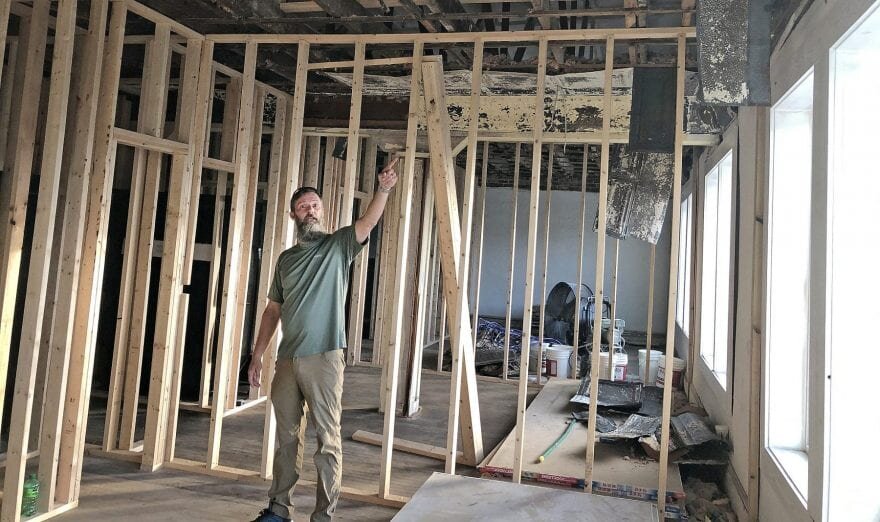By: Allen Turner, The News Reporter
For those who will avail themselves of it, whether they be a veteran businessperson or a budding entrepreneur striking out on their own for the first time in the world of commerce, life has gotten significantly less complicated thanks to a “Business Starter Packet” recently unveiled by the City of Whiteville.
“This packet can be a one-stop shop for opening a business in Whiteville,” says city Economic Development Planner Sean Martin. It can keep potential business owners from re-inventing the wheel while making sure all necessary steps along the way toward opening a new business are taken, while at the same time steering the potential businessperson away from getting bogged down in unnecessary detail that doesn’t apply to them.
Opening a new business can be filled with surprises and unexpected turns, but the city wants to help potential owners know the typical steps before they start the process, whether they are thinking of opening a business from home, signing a lease for an established storefront, or even building a new facility to house their venture.
The packet was put together for Whiteville in cooperation with NCGrowth, an award-winning applied economic development university center with a goal of directly addressing inequality, poverty, underemployment and other factors that keep people and communities from reaching their greatest potential. NCGrowth’s team included expert staff from across the Carolinas, academic advisors from multiple universities and hundreds of local partners.
Calling the packet user friendly, Martin says, “It’s designed to hold your hand all the way through it if you want that. It’s also designed to be as interactive as you want to make it. It’s available in person, if you want paper copies. It’s also available for download on the web page (whitevillenc.gov). Included are interactive maps, table of use, code enforcement.
“All along the way,” Martin continues, “it looks at steps for opening a business. So, let’s say you know you need permits but you aren’t sure what permits you do need. There are three steps suggested before you even sign a lease and it very clearly outlines when to sign your lease so that you, as a potential business owner or consumer, have the opportunity to have needed discussions during your lease process. Or, it’s the same thing if you’re buying instead of leasing. You want to know what to look for, what questions to ask, before anything is official.”
Martin says the city wants to be as business-friendly as possible and promote people checking with them before they sign a lease or purchase a property so they don’t have to go in and spend more money to fix something that may or may not be in the city code.
“We want people to be aware of the entire process from start to finish because, unfortunately, there are many examples of where we may not be contacted at all until there’s a ribbon-cutting or grand opening. Sometimes there are requirements that still have to be met in order to do that grand opening or ribbon-cutting”
For example, signage falls under the permitting process. “It’s so easy to overlook something like that,” Martin says. “But this guide will provide information needed on everything regulated by city in terms of inspections, fire marshal, emergency services and economic development.
An entire section of the guide explains available economic development incentives, incentives that are not utilized as much as they might be. Incentive programs include building improvement grants, utility rebates and a tax incentive program, all explained at great length in the packet with links to applications and explanations of program details.
Martin calls the packet a “living document,” saying “We will update it and improve it as we get more programs or as information changes. Prior to the development of this packet, we had a packet that was limited to permit application forms and one page of information. This replaces that moving forward and offers step-by-step checklists for each stage along the way toward starting a new businesses.”
The packet tells prospective business owners that the first step is checking zoning and land use regulations (and maps showing those specifications are included in the packet). After that, steps for ensuring that their building is up to code are discussed, followed by discussions of obtaining necessary permits, steps to take when signing a lease or making a purchase, getting the building inspected and establishing utility accounts.
Martin encourages people thinking of starting a new business to get a copy of the starter packet, either by picking up in person at City Hall or by downloading from the city web site. He also welcomes calls with questions or requests for more information at 640-1380, ext. 2005.
“Business Starter Packet” recently unveiled by the City of Whiteville.






















